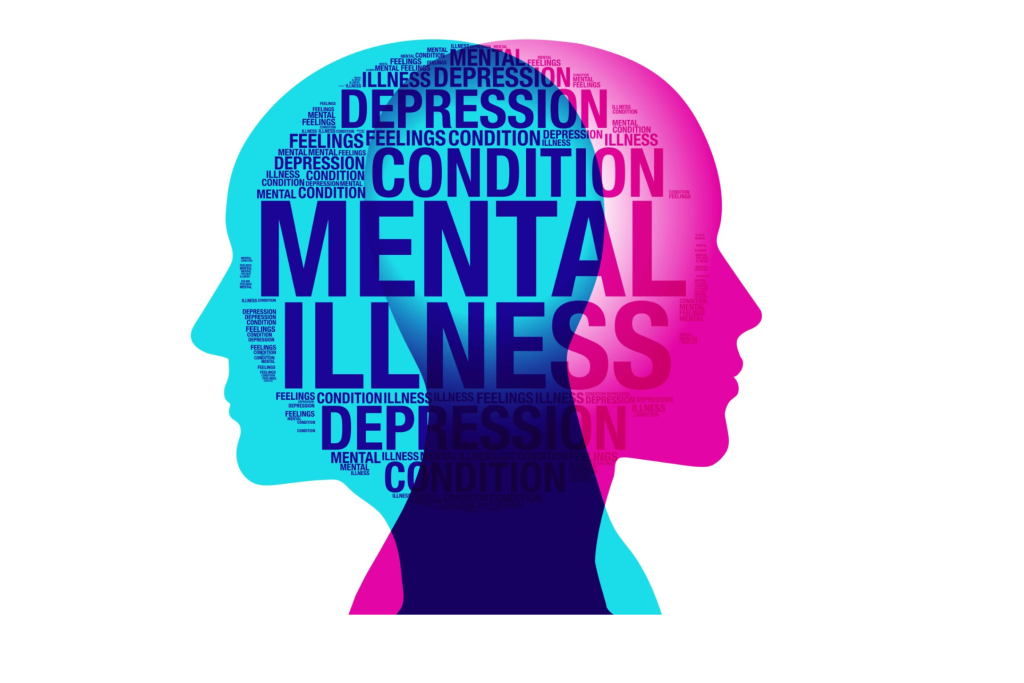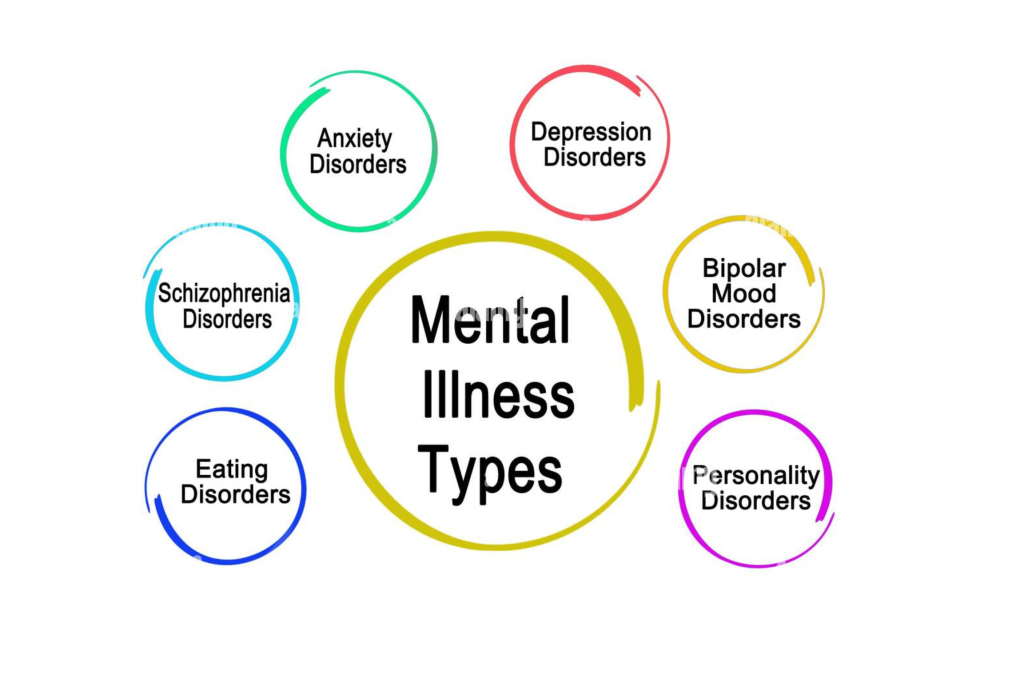
In the realm of mental health, understanding the spectrum of disorders is paramount to fostering awareness, empathy, and effective treatment strategies. Mental health disorders encompass a wide range of conditions that affect mood, thinking, and behaviours, often presenting unique challenges for individuals and their loved ones. In this comprehensive guide, we’ll delve into the intricacies of mental health disorders, explore common misconceptions, and shed light on the importance of destigmatizing mental illness.
Understanding Mental Health Disorders:
Mental health disorders, also known as psychiatric disorders, refer to conditions that significantly impair an individual’s cognitive, emotional, or behavioural functioning. These disorders can manifest in various forms, ranging from mood disorders like depression and bipolar disorder to anxiety disorders, psychotic disorders, and personality disorders. Each disorder presents its own set of symptoms, causes, and treatment approaches, underscoring the complexity of mental health.
Common Mental Health Disorders:

Depression: Characterised by persistent feelings of sadness, hopelessness, and loss of interest in activities, depression is one of the most prevalent mental health disorders worldwide. It can affect individuals of all ages and often requires a combination of therapy, medication, and lifestyle changes for management.
Anxiety Disorders: Anxiety disorders encompass a range of conditions, including generalised anxiety disorder (GAD), panic disorder, phobias, and social anxiety disorder. These disorders involve excessive worry, fear, and avoidance behaviours that interfere with daily life.
Bipolar Disorder: Bipolar disorder involves extreme mood swings, including periods of elevated mood (mania or hypomania) and depressive episodes. It requires lifelong management with mood stabilisers, psychotherapy, and lifestyle adjustments.
Schizophrenia: Schizophrenia is a chronic psychotic disorder characterised by hallucinations, delusions, disorganised thinking, and impaired social functioning. Treatment typically involves antipsychotic medications and psychosocial interventions.
Obsessive-Compulsive Disorder (OCD): OCD is marked by intrusive thoughts (obsessions) and repetitive behaviours or rituals (compulsions) aimed at reducing anxiety. Cognitive-behavioural therapy (CBT) and selective serotonin reuptake inhibitors (SSRIs) are commonly used treatments.
Post-Traumatic Stress Disorder (PTSD): PTSD develops after experiencing or witnessing a traumatic event and is characterised by intrusive memories, flashbacks, hypervigilance, and emotional numbness. Therapy, medication, and support groups are essential components of PTSD treatment.
Dispelling Myths and Misconceptions:
Despite increased awareness of mental health, stigma and misconceptions surrounding mental illness persist. It’s crucial to debunk common myths and promote accurate understanding:
Myth: Mental illness is a sign of weakness.
Reality: Mental illness is not a choice, and experiencing symptoms does not reflect weakness. It requires treatment and support because of a medical condition.
Myth: People with mental illness are violent or dangerous.
Reality: The vast majority of individuals with mental illness are not violent. Actually, they are more likely to be victims of brutality than criminals.
Myth: Mental health disorders are untreatable.
Reality: With proper diagnosis and treatment, many people with mental health disorders can lead fulfilling lives. Treatment may include therapy, medication, lifestyle changes, and support networks.
Myth: Mental health disorders only affect adults.
Reality: Mental health disorders can emerge at any age, including childhood and adolescence. Early intervention and support are critical for addressing symptoms and promoting resilience.
Myth: Seeking help for mental health is shameful.
Reality: Seeking assistance for mental health signifies resilience and self-awareness.. It’s important to prioritise self-care and reach out to professionals or support networks when needed.
Promoting Mental Health Awareness:
To foster a culture of understanding and support for individuals with mental health disorders, it’s essential to prioritise education, advocacy, and stigmatisation efforts:
Educate Yourself: Take the time to learn about different mental health disorders, their symptoms, and available treatments. By increasing your knowledge, you can better support yourself and others.
Encourage Open Dialogue: Create a safe space for open discussions about mental health within your community, workplace, or social circles. Encourage empathy, active listening, and non-judgmental attitudes.
Support Access to Resources: Advocate for accessible and affordable mental health services in your community. This may include promoting awareness campaigns, supporting legislation, or volunteering with mental health organisations.
Practice Self-Care: Prioritise your own mental health by engaging in self-care practices such as exercise, mindfulness, and maintaining social connections. Don’t forget that self-management looks different for everybody, so find out which works best for you.
Be an Ally: Show compassion and support to individuals struggling with mental health disorders. Offer a listening ear, validate their experiences, and encourage them to seek professional help if needed.
Mental health disorders encompass a diverse spectrum of conditions that impact millions of individuals worldwide. By understanding the complexities of these disorders, dispelling myths, and promoting awareness, we can create a more compassionate and supportive society for those affected by mental illness. Let’s continue to prioritise mental health, advocate for access to resources, and work towards building a world where everyone feels understood, accepted, and empowered to seek help when needed.



